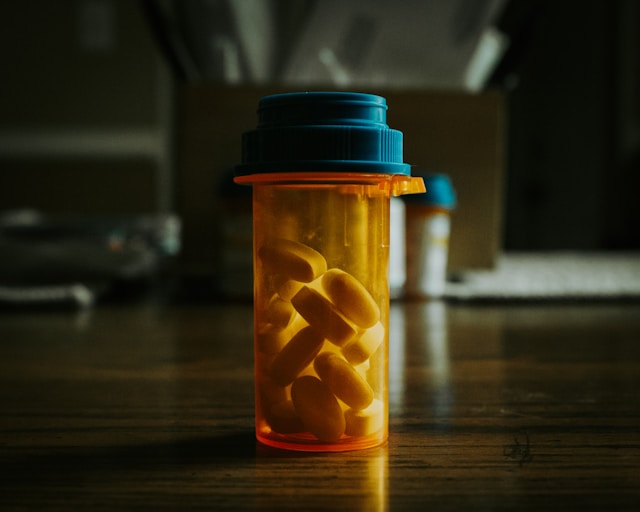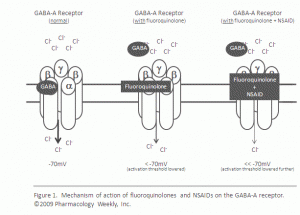I have a confession – I didn’t even glance at the warning insert that came with my Cipro prescription. I didn’t even think about reading it. I didn’t think for a second that I needed to be worried about the side-effects of an antibiotic. I assumed that all antibiotics were safe, thoroughly tested, had few side-effects and that any side-effects that they had wouldn’t hurt ME. After all, I was a fit, strong 32 year old with zero health issues other than the urinary tract infection that I was trying to treat. I thought that I had nothing to worry about and that medicine generally and antibiotics specifically fell into the category of things that do good, not harm. So when I developed severe Central, Peripheral and Autonomic Nervous System malfunctions and inflamed tendons after taking Cipro, I was shocked and shaken that an ANTIBIOTIC that is prescribed every day to treat simple urinary tract and other infections, could cause me, a healthy and fit woman, to be suddenly systemically sickened.
I suppose that, since I didn’t read the warning label, I have to take a certain amount of personal responsibility for what happened to me. Officially, I was warned. I should have known that Cipro, one of the most popularly prescribed broad-spectrum antibiotics on the market, could cause tendonopathy, renal failure, rash, anemia, hepatic failure, hallucinations, seizures, permanent peripheral neuropathy, etc. I should have read the warning label so, at the very least, I would have known that when I experienced inflammation and weakening of every tendon in my body (lightly referred to as tendonopathy – as if that even comes close), hives all over my body, loss of memory and reading comprehension, inability to concentrate, peripheral neuropathy, anemia, etc., that I was experiencing an adverse reaction to the drug that I had taken. Should’ve, would’ve, could’ve. I lived and learned and will certainly read warning labels in the future. However, I don’t think that I am unusual in not bothering to read the warning label that accompanied my prescription for antibiotics. Do other people read drug warning labels?
Doctors certainly don’t seem to read drug warning labels. Every single doctor who I asked whether or not Cipro could have caused my symptoms said that it couldn’t have, despite the fact that the majority of my symptoms are listed on the warning label.
And even if I had read the warning label, would I have been sufficiently warned? I assumed, as I think most people do, that drug side-effects are transient, that they are stopped as soon as administration of the drug is stopped, or at least as soon as the drug is fully metabolized. I had no idea that a drug could cause a syndrome that would take me years to recover from. Nowhere on the warning label does it say that side-effects can be long-lasting and, when I took Cipro in 2011, nowhere on the label was the word “permanent.” It was only added to the warning label in 2013 in reference to permanent peripheral neuropathy.
Who would think that a drug, an antibiotic no less, could cause a chronic syndrome that includes pain and nerve destruction? Again, doctors certainly don’t because not a single one acknowledged that my cascade of physical and mental issues that cumulatively was a toxicity syndrome, was caused by Cipro. This was despite not only the warning label but also thousands of patient reports, lawsuits, media reports and studies that show that I was not crazy or suffering from sudden onset of an autoimmune disease; I was poisoned by a prescription antibiotic.
Even if I had read the warning label, I likely would have assumed that side-effects were rare. The people who acknowledged that Cipro caused the damage that it caused in me dismissed the possibility that what happened to me could happen to them by saying that adverse effects of fluoroquinolone antibiotics (Cipro, Levaquin and Avelox) are rare. How, I wonder, would anyone have a clue whether or not Fluoroquinolone Toxicity Syndrome is rare? Given that the onset of symptoms is often delayed by days, weeks or even months after administration of the drugs has stopped; that doctors and patients alike are looking for allergic reactions when they are looking for adverse drug reactions, not systemic breakdown in the form of a syndrome; that the doctors who prescribe fluoroquinolones (general practitioners and emergency care doctors) are typically not the same doctors who treat the symptoms (rheumatologists, neurologists, psychologists, etc.); that there appears to be a tolerance threshold for fluoroquinolones (meaning that you can take it up to your threshold point without incident but once you cross your threshold point you suffer from a severe onslaught of symptoms), a concept that those who are doing drug studies don’t even seem to consider; and that almost everyone in the medical field is in complete denial about the dangers of these drugs, how in the world would anyone, including the FDA, have a clue what the frequency of adverse reactions to these drugs is???
Risk is not properly communicated via drug warning labels. Risk is a function of severity and frequency. Individual adverse symptoms are listed on drug warning labels, but nowhere does it state how severe each symptom can be, or whether multiple symptoms can occur simultaneously, or if the drug can trigger a long-lasting syndrome that itself is a chronic disease. How can people possibly assess the risk of experiencing severe, life-altering, long-term side-effects if it’s nowhere on the warning label that those things can happen? And if frequency of adverse reactions is systematically under-acknowledged for the reasons listed above, how can people possibly assess the likelihood that an adverse reaction will happen to them?
Perhaps doctors and patients alike are doing the sensible thing in not bothering to read drug warning labels. If the information that they give is arbitrary and they don’t help people to assess the actual risk associated with a drug properly, they should be ignored.
The only party that the warning labels are truly serving is the drug companies, because if they can say that they warned you through the paperwork that accompanies dangerous drugs, you can’t sue them.
So who is appropriately communicating the real risk of adverse drug reactions to patients? Who is communicating the risk to doctors? How is anyone supposed to know the real severity and frequency of adverse drug reactions? We’re not getting that information – from anyone. The FDA is failing to provide that information. Neither doctors nor patients are demanding that information. Everyone is assuming that adverse drug reactions are rare, while the number of deaths from prescription drugs climbs and the number of chronic diseases that people suffer from, many of which are caused by adverse drug reactions, skyrockets.
Perhaps it is time that we start demanding that drug warning labels mean something. They should accurately and completely reflect the real dangers associated with each and every drug. Frequency of adverse events should be noted on the warning labels. This is not too much to ask for. Patients, doctors and everyone else involved should insist on it. We deserve to know.
For a list of warnings that should be on the label for fluoroquinolone antibiotics, please visit www.ciproispoison.com.
We Need Your Help
More people than ever are reading Hormones Matter, a testament to the need for independent voices in health and medicine. We are not funded and accept limited advertising. Unlike many health sites, we don’t force you to purchase a subscription. We believe health information should be open to all. If you read Hormones Matter, like it, please help support it. Contribute now.
Yes, I would like to support Hormones Matter.
Photo by Bruno Guerrero on Unsplash.
This article was published previously in October 2013.






















